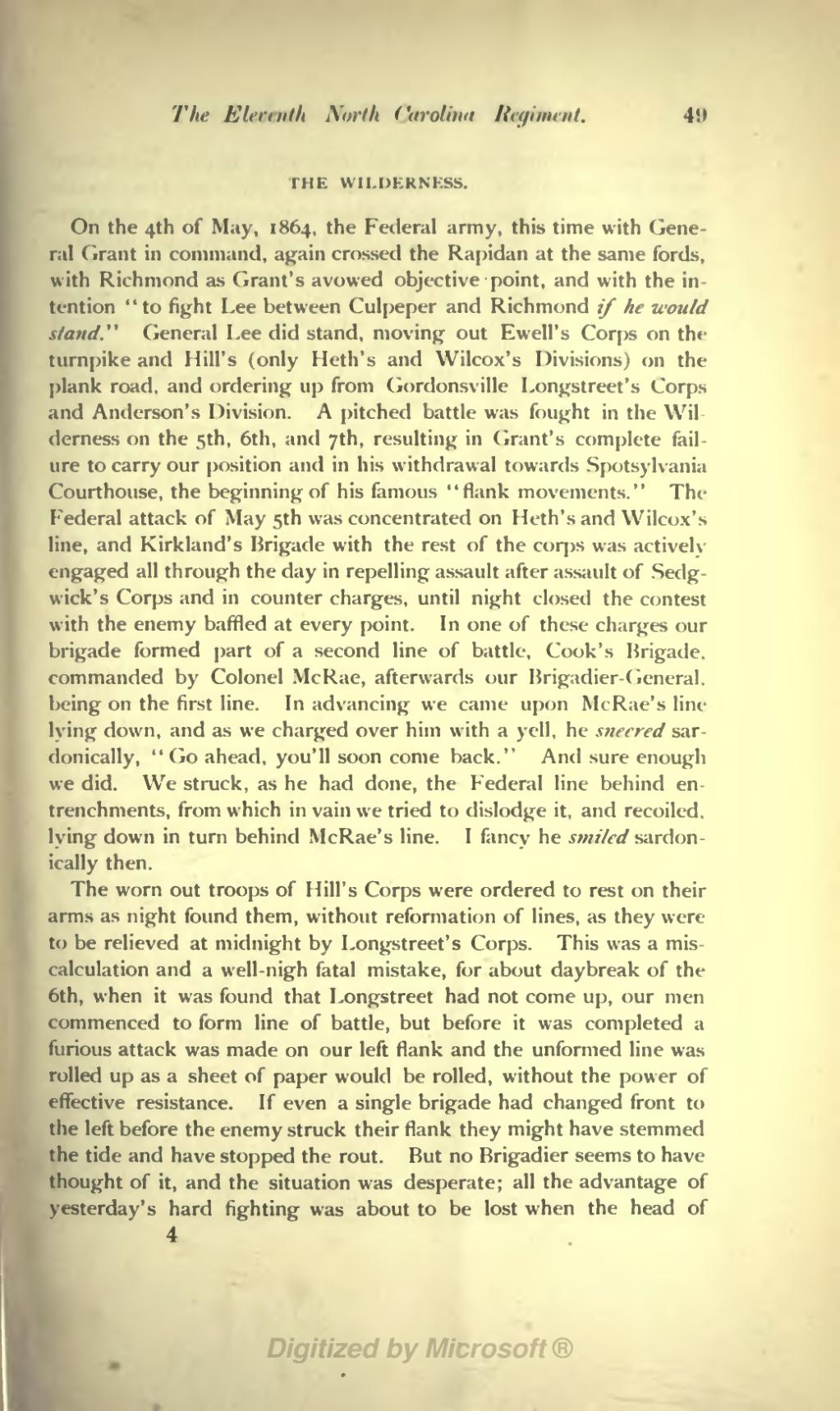I III U I1.HKKNKSS.
On the 4th of May, 1864, the Federal army, this time with Gene- ral drant in command, again crowed the Rapidan at the same fords, with Richmond as Grant's avowed objective -point, and with the in- tention "to right Lee between Culpeper and Richmond if he would stand." General Lee did stand, moving out Ewell's Corps on the turnpike and Hill's (only Heth's and Wilcox's Divisions) on the plank road, and ordering up from Gordonsville Longstreet's Corps and Anderson's Division. A pitched battle was fought in the Wil dernes> on the 5th, 6th, and 7th, resulting in (irant's complete fail- ure to carry our position and in his withdrawal towards Spotsylvania Courthouse, the beginning of his famous "flank movements." The Federal attack of May 5th was concentrated on Heth's and Wilcox's line, and Kirkland's Brigade with the rest of the corps was actively engaged all through the day in repelling assault after assault of Sedg- wick's Corps and in counter charges, until night closed the contest with the enemy baffled at every point. In one of these charges our brigade formed part of a second line of battle, Cook's Brigade, commanded by Colonel McRae, afterwards our Brigadier-General, being on the first line. In advancing we came upon McRae's line lying down, and as we charged over him with a yell, he sneered sar- donically, " Go ahead, you'll soon come back." And sure enough we did. We struck, as he had done, the Federal line behind en- trenchments, from which in vain we tried to dislodge it, and recoiled, lying down in turn behind McRae's line. I fancy he smiled sardon- ically then.
The worn out troops of Hill's Corps were ordered to rest on their arms as night found them, without reformation of lines, as they were to be relieved at midnight by Longstreet's Corps. This was a mis- calculation and a well-nigh fatal mistake, for about daybreak of the 6th, when it was found that Longstreet had not come up, our men commenced to form line of battle, but before it was completed a furious attack was made on our left flank and the unformed line was rolled up as a sheet of paper would be rolled, without the power of effective resistance. If even a single brigade had changed front to the left before the enemy struck their flank they might have stemmed the tide and have stopped the rout. But no Brigadier seems to have thought of it, and the situation was desperate; all the advantage of vesterday's hard fighting was about to be lost when the head of 4
